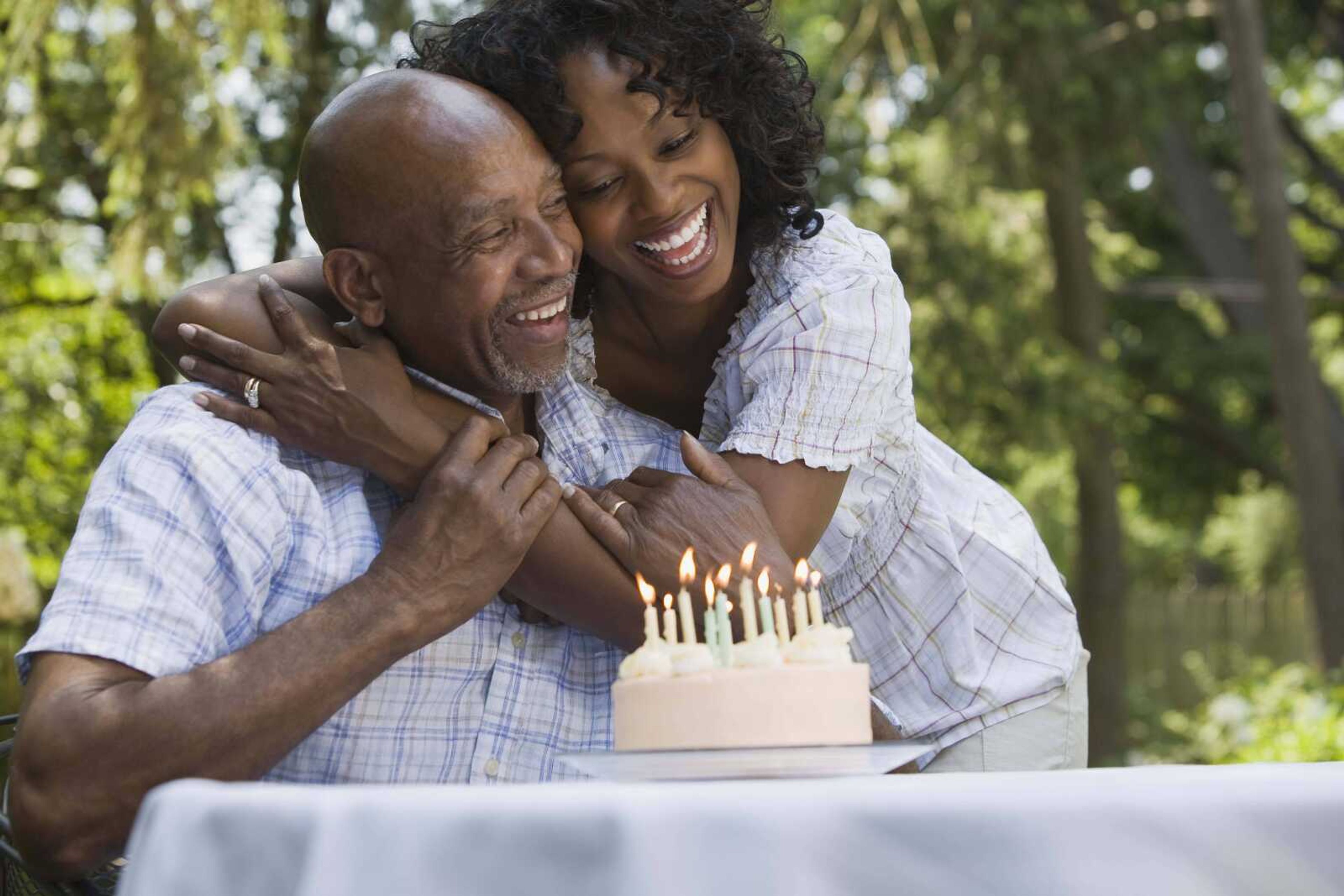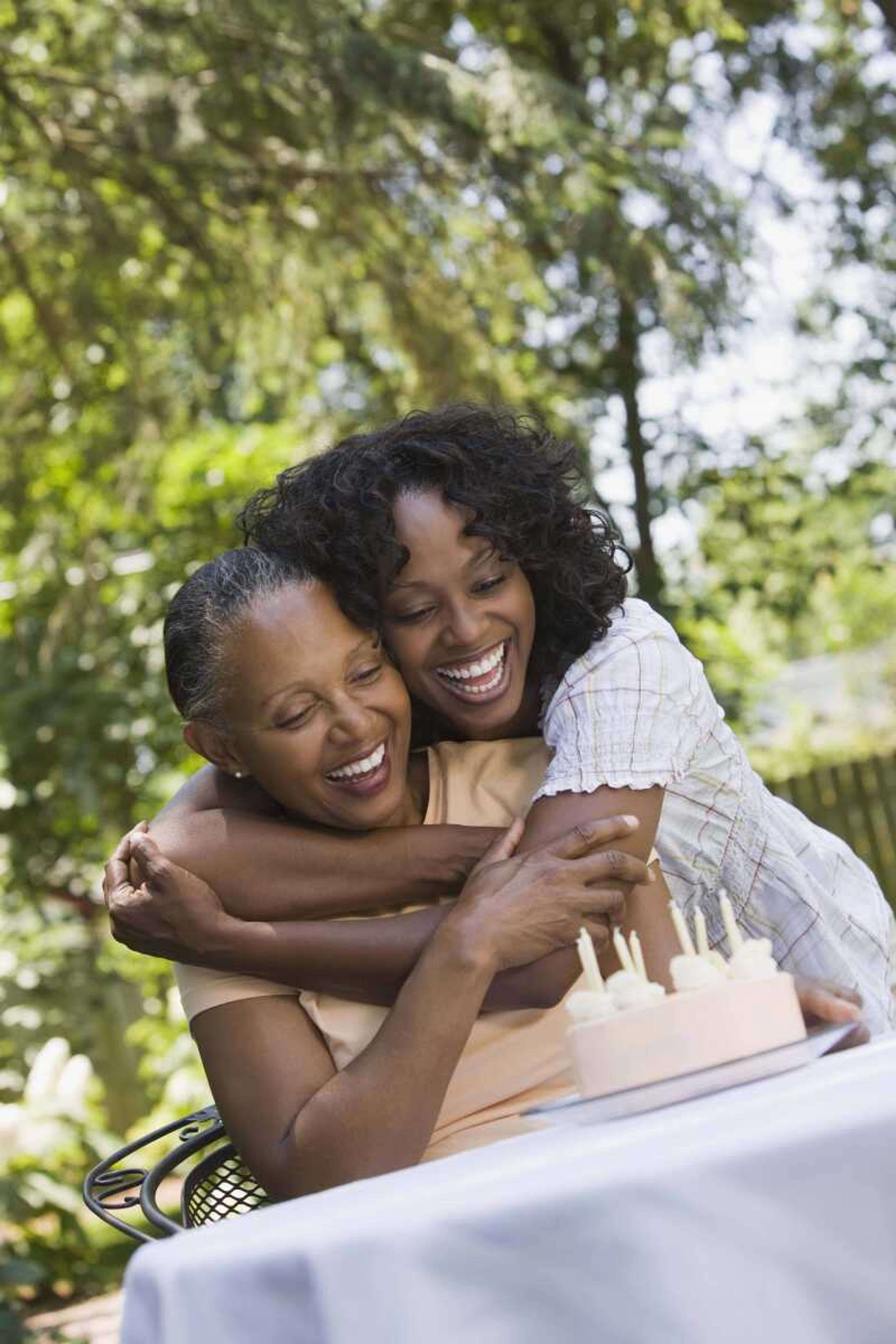Staying connected: What to expect and how to keep communicating when your loved one has Alzheimer's
There are 5.3 million Americans living with Alzheimer's disease today, and the number is growing. By 2050, up to 16 million will have the disease. What does this mean for you, as a woman? Nearly two-thirds of those with Alzheimer's are women, and women also are far more likely to become caregivers of someone with Alzheimer's or other dementia. Women make up 63 percent of unpaid Alzheimer's caregivers in the U.S. -- that's about 13 million women...
There are 5.3 million Americans living with Alzheimer's disease today, and the number is growing.
By 2050, up to 16 million will have the disease.
What does this mean for you, as a woman?
Nearly two-thirds of those with Alzheimer's are women, and women also are far more likely to become caregivers of someone with Alzheimer's or other dementia. Women make up 63 percent of unpaid Alzheimer's caregivers in the U.S. -- that's about 13 million women.
Even scarier: Alzheimer's disease is the only cause of death among the top 10 in America that cannot be prevented, cured or slowed.
"Every individual who has the disease is different. They've had different life experiences, and they experience the disease differently," says Amy Adams, director of social services and activities at The Lutheran Home in Cape Girardeau. "The world has become a challenging place for them, and being able to interpret the world around them is really difficult."
Communication becomes difficult once a person enters the middle to late stages of Alzheimer's, Adams says.
"One of the biggest challenges is that people have what I call 'word salad.' The brain physically cannot always put out the correct words -- the person knows what they want to say, but they can't get the correct words to say," says Wendy Boren, assisted living coordinator at Chateau Girardeau and a community educator for the Alzheimer's Association. "Be patient. It's going to take them awhile to express themselves, and they're not going to be able to express themselves in the way that we do."
Boren reminds families and caregivers that people with Alzheimer's can understand tone, body language and facial expression, even if they can't understand your words.
"In responding to them or listening, truly be sincere," she says.

Adams agrees: "Most of communication is not about the actual words -- it's about how you say it," she says. "Make sure you're very friendly and kind in your approach. Always be calm and matter-of-fact."
Adams says it helps to convey your message through touch: Touch the person's hand or shoulder while you speak, and he or she will feel reassured and cared for -- especially if they've gotten to the point where they're afraid and don't know who you are. It's also helpful to maintain eye contact while speaking, and point to what you're talking about.
"When communicating with someone, try to minimize the environment around them," she adds. "Turn off the TV and radio, close the door where the other noise is coming from, and focus on that individual. Make sure you're calm as you share the message with them."
Boren says one of the best ways to spend time with a person with Alzheimer's is through sensory objects that call on different areas of the brain -- think baking cinnamon rolls together, playing with sand or listening to music you know the person likes and remembers.
"A person will get to a point where they can't talk to you anymore, but you can tell they're trying to. It looks like a sadness, a blank face that you can't seem to penetrate. The hardest thing for me to tell family members is that there's still a person there -- you just have find way to get to them," Boren says.
She suggests doing things you used to do together. A person with Alzheimer's will enjoy and possibly remember it in some way, even if they can't tell you about it.
"Do what you used to do -- they have Alzheimer's, they don't have leprosy," Boren says. "They're still human. They might not know your name, but who cares?"
Boren and Adams both speak of connecting with a person with Alzheimer's in their own world.
"The most important thing ... is really to step into their reality," Adams says. "If they don't understand what's going on in the world around them, try to understand their world, what they're seeing and experiencing."
Don't argue or try to correct them if they don't remember your name or that Aunt Ida died 30 years ago -- it won't work, Boren says, and you'll both become frustrated. You may also have to accept that your loved one can no longer handle long conversations or big family get-togethers -- instead, work on creating and enjoying a new world with that person, say Boren and Adams.
"Their world is different from ours, and you can't go the way you're used to going -- you have to take a different route," Boren says.
Try to connect with your loved one however you can, and enjoy the moment without worrying about what else is going on in your life.
"They, more than anybody else, can enjoy simplicity. In fact, they have to have it," Boren says. "For the caregiver, particularly the woman caregiver, this is your chance to truly enjoy that sunset, that quiet moment holding someone's hand, or listening to music softly and giving someone a hug. That's what they can process. They're not concerned about the grocery list or day care or laundry that needs to be done or paying the bills. All those worries are gone."
If you find yourself in a caregiving position, remember to take care of yourself, too.
"Know when you need a break. Nobody can do that 24/7. Know that you can't be Superwoman all the time -- it's not possible," Boren says.
Try to maintain your social circle and favorite activities. Make use of respite services offered through the Alzheimer's Association, as well as its 24/7 Helpline at 800-272-3900. Lutheran Family and Children's Services in Cape Girardeau offers respite for caregivers of people with dementia, and The Lutheran Home hosts a caregiver support group at 7 p.m. the second Tuesday of every month.
"The most important thing you can do is take care of yourself. You can't be a good caregiver if you don't take care of yourself," Adams says. "The best thing you can do is really reach out. Empower yourself to find out more about the disease and use the resources out there. Some of the best help you can find is through a support group."
All statistics in this article were provided by the Alzheimer's Association.
SAVE THE DATE
The annual Walk to End Alzheimer's will be held Saturday, Sept. 19, at Cape County Park North in Cape Girardeau. Registration for the 2-mile walk begins at 8 a.m., followed by a ceremony at 9 and the walk at 9:30. For more information or to register, contact Greg Sciuto at 314-221-5306 or gsciuto@alz.org. Volunteers also are needed. All funds raised will be put toward care, support and research efforts of the Alzheimer's Association.
Connect with the Southeast Missourian Newsroom:
For corrections to this story or other insights for the editor, click here. To submit a letter to the editor, click here. To learn about the Southeast Missourian’s AI Policy, click here.









